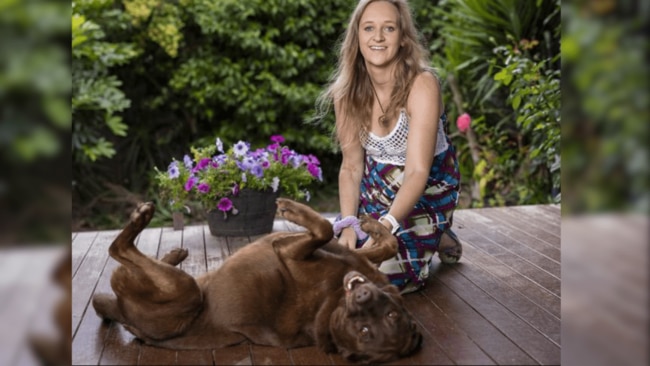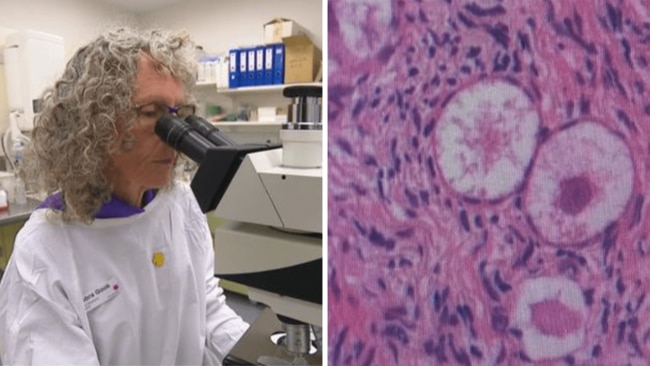Researchers developing artificial ovary for cancer survivors facing infertility
"If this research works for just one woman who has had leukaemia, it’ll absolutely be worth it,” said Melbourne resident Stacey-Lee.
Family Life
Don't miss out on the headlines from Family Life. Followed categories will be added to My News.
Researchers in Melbourne are one step closer to developing an artificial ovary for thousands of cancer survivors who are unable to have children due to the side effects of chemotherapy.
Stacey-Lee was diagnosed with acute lymphoblastic leukaemia twice, first at the age of three and again at seven, before being diagnosed with thyroid cancer as an adult.
As a result of her numerous cancer treatments, the 29yo Melbourne resident is unable to have children, despite trying IVF several times.
Want to join the family? Sign up to our Kidspot newsletter for more stories like this.
RELATED: ‘Incredible’: Sydney woman delivers first baby after getting uterus transplant

“Radiation is like a nuclear bomb going off in your body”
“Radiation is like a nuclear bomb going off in your body,” she told The Herald Sun. “Wanting to have children, that’s something I’ll never be able to do.”
According to Dr Debra Gook, the head of Cryopreservation Services at Royal Women's Hospital, chemotherapy drugs, which are used at extremely high levels, can damage and destroy the important follicles inside ovaries.
But the project, spearheaded by Dr Gook at Royal Women's Hospital, said developing artificial ovaries could be the key to giving cancer survivors hope of having children.
“If this research works for just one woman who has had leukaemia, it’ll absolutely be worth it,” said Stacey-Lee. “That would be a massive breakthrough.”
This groundbreaking project has been decades in the making, Dr Gook explained.
“I had a friend who developed cervical cancer, and she said one of her biggest regrets was that she'd never be able to have children and never see her children grow up,” Dr Gook said per the Cancer Council website.
She “made it a mission” in her career to develop an easier way for women to have children, opening the world’s first egg bank in 1994 at the Royal Women's Hospital.
“I then found many of those women couldn't delay their chemo to wait for their cycle for egg collection, so I developed a method for freezing ovarian tissue,” she said.
RELATED: 'It started with a minor fall, then she lost an ovary and fallopian tube'

Hopes artificial ovaries are “less than five years away”
Dr Gook’s team aims to mimic the fertility function of a natural ovary, replicating the production of eggs and releasing steroid hormones.
According to The Herald Sun, some cancer patients can use follicles from their ovaries before starting chemo, but this is almost impossible for women with Leukemia as cancer cells may also be present in the woman’s ovaries.
“If we took the tissue and froze it and then transplanted it back, we then have a high risk that we would reinitiate the cancer after they’ve had a cure,” she said.
With the new project, however, which Dr Gook likened the method to scaffolding around a building under construction, there are hopes that they can “wash out” the leukaemia cells in the ovarian tissue by treating it with chemotherapy.
Then the medical team would isolate the frozen follicles from the ovarian tissue and place them in the artificial ovary.
“We’d then take this sort of jelly containing the follicles and probably inject that back into the ovary,” she said.
Dr Gook explained the groundbreaking project has been underway for almost 10 years and has been showing “promising” results with mice but has faced some issues with human cells.
However, the team believe they have narrowed down the problems and are on their way to making a serious breakthrough.
“We’re about 50 per cent of the way there,” she said. “I hope it’s in the near future and that to me would be less than five years away.”
More Coverage
Originally published as Researchers developing artificial ovary for cancer survivors facing infertility




